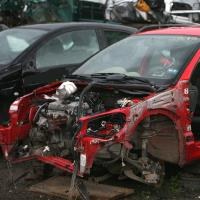(BRUSSELS) – The EU institutions reached a provisional agreement in the early hours of Monday morning on four legislative proposals of a ‘waste package’, representing another step in Europe’s transition to a ‘circular economy’.
Nearly a third of the EU’s municipal waste is currently landfilled, with a limited share of the total being recycled.
The agreed waste legislative proposals establish binding waste reduction targets and updated rules to decrease waste generation, ensure a better control of waste management, encourage the reuse of products and improve recycling in all EU countries.
“With this agreement, EU member states are committing to clear EU targets on reuse, recycling and landfilling and rules to improve the management of different waste streams,” said Estonia’s environment minister Siim Kiisler, for the EU presidency: “This will help accelerate our transition towards a circular economy and minimise our impact on the planet.”
The deal comes after lengthy and tough negotiations with the Parliament since May 2017. It amends the following six pieces of legislation:
- Waste framework directive (considered the umbrella legislative act of the package)
- Packaging waste directive
- Landfill directive
- Directives on electrical and electronic waste, on end-of-life vehicles; and on batteries and accumulators and waste batteries and accumulators
The key elements of the agreed text include:
- clearer definitions of key waste concepts
- new binding targets at EU level for waste reduction to be met by 2025 and 2030, and 2035. These targets cover the share of municipal waste and packaging waste recycling (with specific targets for various packaging materials), and also a target for municipal waste landfilled by 2035
- stricter methods and rules to calculate the progress made towards those targets
- stricter requirements for the separate collection of waste, reinforced implementation of the waste hierarchy through economic instruments and additional measures for member states to prevent waste generation
- minimum requirements for extended producer responsibility schemes. Producers under these schemes are responsible for the collection of used goods, sorting and treatment for their recycling. Producers will be required to pay a financial contribution for that purpose calculated on the basis of the treatment costs.
Commission proposal (waste framework directive)
Commission proposal (landfill directive)


